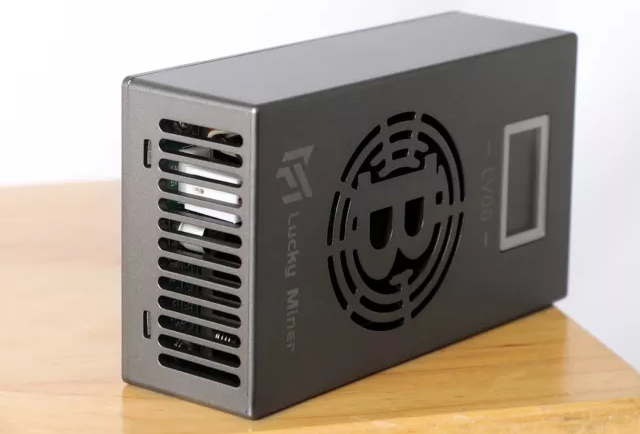A Bitcoin mining device with a modest hashrate of just 500 gigahashes per second (Gh/s) has successfully mined a block, securing a reward worth approximately $206,000. The remarkable event occurred on July 24, as announced by Bitcoin mining device retailer Altair Technology on X (formerly Twitter).
Bitaxe: The Tiny Yet Mighty Miner
The device, known as “Bitaxe” and produced by D-Central Technologies, is roughly the size of a human hand. Despite its small stature, Bitaxe managed to achieve the extraordinary feat of mining a Bitcoin block. According to Altair Technology, the block was mined using node infrastructure service Solo CKPool. The CKPool website clarifies that it allows miners to mine solo, emphasizing that it is “NOT a pool despite its name.”
Blockchain data confirms that Bitcoin block number 853742, mined at 11:43 am UTC on July 24, was produced by this “pool.” Altair identified this block as the one mined by the Bitaxe device.
Unlikely Odds and Tremendous Payoff
The total hash power of the Bitcoin network currently stands at 552.49 Exahashes per second (Eh/s), equivalent to 552,490,000,000 Gh/s. This means that the Bitaxe, with its 500 Gh/s hashrate, had roughly a 1 in 1.1 billion chance of mining a block every ten minutes. Despite these astronomical odds, the Bitaxe managed to mine a block, turning a highly improbable event into a reality.
Bitcoin mining, often likened to a lottery, requires miners to consume electricity even if they do not successfully mine a block. This expense must be covered out of the miners’ own funds. Thus, solo Bitcoin mining involves significant financial risk. However, in this instance, the solo miner’s gamble paid off handsomely.
Solo Mining vs. Mining Pools
This event is not the first instance of a solo miner successfully mining a block. In April, another solo Bitcoin miner mined a block using a device with a power of 120 petahashes per second (Ph/s), or 120,000,000 Gh/s, which is 240 times the processing power of the Bitaxe.
Most Bitcoin miners join mining pools, where they combine their hash power and share the rewards proportionately based on the contributed hash power. This practice aims to reduce the variance in mining rewards and provide more consistent income. However, some Bitcoin enthusiasts argue that pooling hash power leads to centralization of the network. They champion solo mining as a means to preserve the decentralized nature of Bitcoin.
